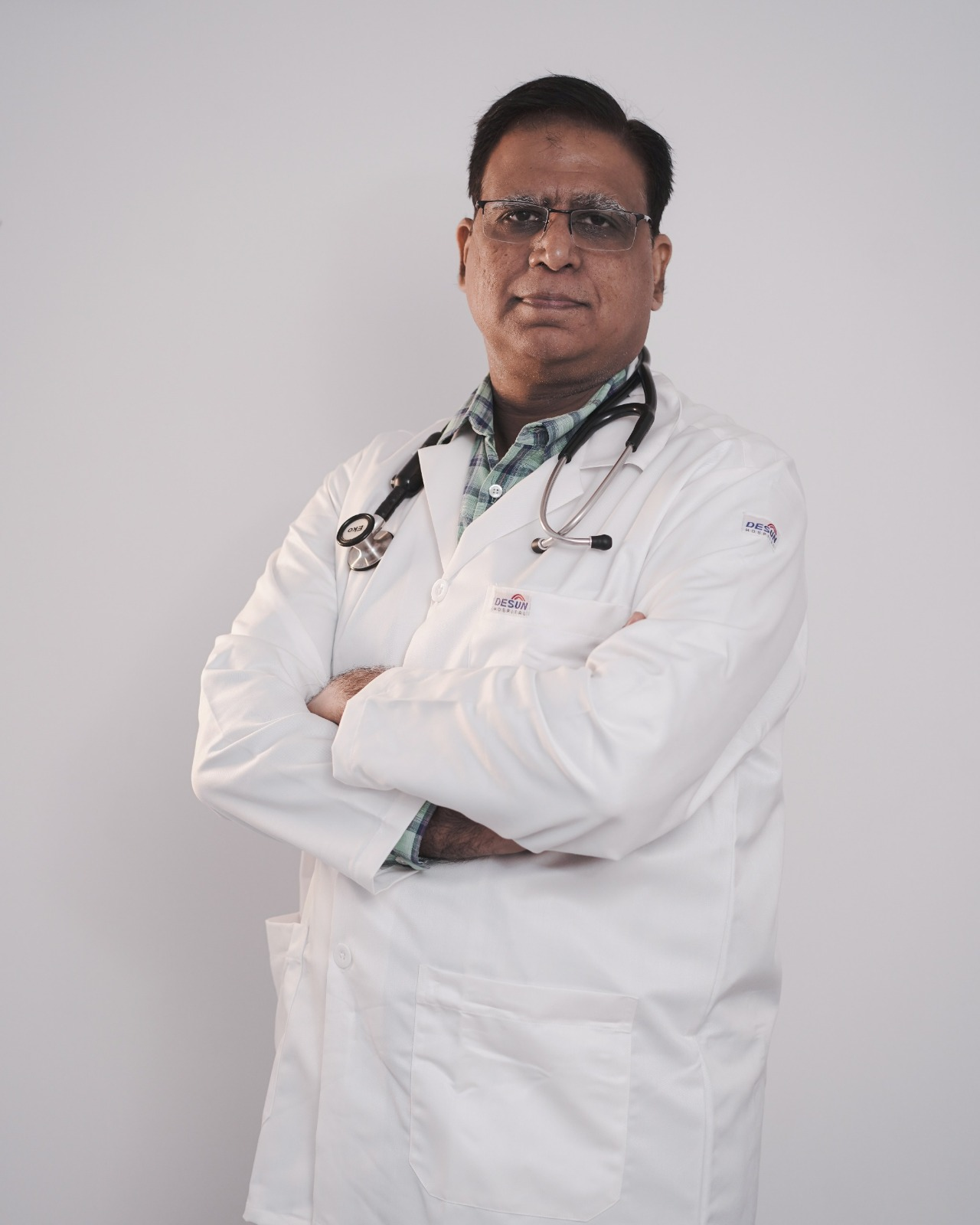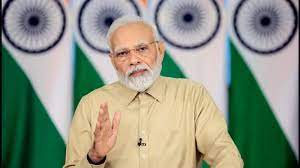Hypertension or high blood pressure is a common ailment but can lead to serious consequences and even sudden death if not controlled.Chronic hypertension effects most of the vital organs and is the commonest cause of heart attack, stroke and kidney disease.
Dr M Shahnawaz Purkait, the Medical Superintendent of Techno India Dama Healthcare and Medical Centre states few guidelines for managing Borderline and mild hypertension

1.Maintaining proper weight as per BMI.
2.Having a healthy diet which is low in salt , potassium and animal proteins.
3.Moderate physical activity /exercise like walking , cycling ,swimming or freehand and yoga 20 to minutes 3 to 5 times a week.
4.Smoking cessation.
5.Reducing caffeine,tea ,alcohol.
6.Adequate sleep ( 6 to 8 hrs ) at night.
7.Avoiding a stressful lifestyle and spending some time in meditation.
8.Regular BP check up after reaching 40 yrs age .
9.Following all prescribed medications and taking special care if one is Diabetic or Obese or having a family history of hypertension.

- Special care during pregnancy when the BP can shoot up .
The issue of Hypertension or high blood pressure also bears adverse effects on the eyes by causing damage to the blood vessels. The effects can range from something harmless like a subconjunctival hemorrhage to something vison threatening like a retinal vein occlusion.
Dr Soham Basak, Consultant, Cornea Department of Disha Eye Hospitals throws light on the impact of Hypertension on the Human Eyes and the imperative steps to deal with this problem.

- Hypertensive retinopathy – uncontrolled high blood pressure over a long time can cause changes in the blood vessels supplying the retina or the delicate screen at the back of our eyes. The vessel damage can lead to fluid leakage and causes edema of the retinal tissues and sometimes small hemorrhages. This can lead to blurred vision.
- Retinal vein and artery occlusion – commonly referred to as stroke of the retina. Hypertension is one of the leading risk factor leading to these conditions. In retinal vein occlusion there is rupture of the retinal blood vessels leading to blood collection in the retina, whereas in retinal artery occlusion the retina is damaged due to diminished blood circulation. Both need urgent treatment – retinal injections, lasers and even surgery in rare situations.
- Ischemic optic neuropathy – the nerve connecting the eye to the brain is affected in this condition. High blood pressure can lead to reduced blood flow to this nerve leading to irreversible vision loss.
- Hypertension is also responsible for onset and worsening of diabetic eye disease.
- Subconjunctival hemorrhage – sudden changes in blood pressure can cause the delicate vessels of the white of the eye to rupture and leak blood in the surrounding area. This can cause bright redness of the eyes which is often alarming, but this is a relatively harmless and self-resolving condition. The redness resolves within 2 to 4 weeks with little to no treatment.
- Lastly, hypertension is also a risk factor in progression of glaucoma and age-related macular degeneration (weakening of the retinal cells due to old age). These are again due to the effect high blood pressure has on altering blood flow to the delicate and microscopic blood vessels of the eye.
So control of blood pressure not only prevents certain eye diseases, it also has an indirect effect on the progression of other ocular pathologies. Fluctuation of blood pressure is also harmful. So the control should be maintained steadily. People over the age of 40 are encouraged to get their blood pressure checked at regular intervals.
According to Dr Abhinay Tibdewal, Consultant, Interventional Cardiologist of ILS Hospitals , a critical step in preventing and treating high blood pressure is a healthy lifestyle. You can lower your blood pressure with the following lifestyle changes:

- Losing weight if you are overweight or obese
- Quitting smoking. Tobacco damages the walls of your blood vessels and hardens your arteries. Both need to be in good shape while you control your blood pressure.
- Following the DASH eating plan, which stands for Dietary Approaches to Stop Hypertension. It focuses on vegetables, fruits, whole grains fish, poultry, nuts, and beans. High-potassium foods, like avocados, bananas, dried fruits, tomatoes, and black beans, get a big thumbs-up. This plan keeps sugary drinks, sweets, and high-fat meats and dairy products at a minimum.
- Reducing the amount of sodium in your diet to less than 1,500 milligrams a day if you have high blood pressure; healthy adults should try to limit their sodium intake to no more than 2,300 milligrams a day (about 1 teaspoon of salt). Many processed foods have a lot of salt in them. For instance, soups, condiments, and tomato sauce can have as much as 75% of the total amount of salt you need each day. Read food labels carefully (salt is listed as sodium), and don’t sprinkle more on when you cook or before you eat. Instead, use spices and herbs to flavor your food.
- Getting regular aerobic exercise (such as brisk walking at least 30 minutes a day, several days a week). Check out a yoga class. Seek out activities that get your heart pounding, like biking or swimming. Over the course of a week, aim to exercise consistently for at least 2 1/2 hours total.
- Keeping a healthy weight for your age and height is key. If you’re overweight or have obesity, you can lower your blood pressure by losing just 5 pounds.
- Limiting alcohol to two drinks a day for men, one drink a day for women. One drink is an ounce of alcohol, 5 ounces of wine, or 12 ounces of beer.
- Reducing stress. Think about stressful areas of your life and take steps to change them. Consider talking to a counselor, learning meditation or anger-control techniques, or getting regular massages.
Hypertension is the modern age epidemic with a concerning demographic shift towards younger age groups.
The cause of hypertension is multifactorial , based on several risk factors: - Smoking.
- Being overweight or obese.
- Lack of physical activity.
- Too much salt in the diet.
- Too much alcohol consumption (more than 1 to 2 drinks per day)
- Stress.
- Older age.
- Genetics.
Health conditions that can cause high blood pressure include:
Kidney disease, Diabetes, sleep apnea, hormonal problems, connective tissue diseases and of course heart disease is a common factor.

Medicines that can increase bp include oral contraceptives, steroids, some pain killers(nsaids), some herbal remedies – particularly those containing liquorice, recreational drugs – such as cocaine and amphetamines, few anti depressants
Hypertension or high blood pressure has become one of the most-prevalent lifestyle diseases in the present century. The incidence in India is as high as one out of every three adults, and majority of the affected people are not even aware. our lives have become more sedantary than ever. Aspects like long working hours, lethargy, poor dietary habits and no physical activity are pushing people towards this epidemic.
Hypertension is broadly classified into two types – primary and secondary. The primary form occurs solely because of our lifestyle and genetic make-up, while the secondary form arises due to chronic illness like kidney or endocrine disorder
Hypertension classification (based on office BP measurements)
Normal BP SBP < 130 and DBP < 85 High-normal BP SBP 130–139 and/or DBP 85–89 Grade 1 hypertension SBP 140–159 and/or DBP 90–99 Grade 2 hypertension SBP>160 and or DBP>100
Most people with high blood pressure have no symptoms, even if blood pressure readings reach dangerously high levels. You can have high blood pressure for years without any symptoms.
A few people with high blood pressure may have:
- Headaches
- Shortness of breath
- Nosebleeds
However, these symptoms aren’t specific. They usually don’t occur until high blood pressure has reached a severe or life-threatening stage.
The excessive pressure on the artery walls caused by high blood pressure can damage blood vessels and body organs. The higher the blood pressure and the longer it goes uncontrolled, the greater the damage.
Uncontrolled high blood pressure can lead to complications including:
- Heart attack or stroke. Hardening and thickening of the arteries due to high blood pressure or other factors can lead to a heart attack, stroke or other complications.
- Aneurysm. Increased blood pressure can cause a blood vessel to weaken and bulge, forming an aneurysm. If an aneurysm ruptures, it can be life-threatening.
- Heart failure. When you have high blood pressure, the heart has to work harder to pump blood. The strain causes the walls of the heart’s pumping chamber to thicken. This condition is called left ventricular hypertrophy. Eventually, the heart can’t pump enough blood to meet the body’s needs, causing heart failure.
- Kidney problems. High blood pressure can cause the blood vessels in the kidneys to become narrow or weak. This can lead to kidney damage.
- Eye problems. Increased blood pressure can cause thickened, narrowed or torn blood vessels in the eyes. This can result in vision loss.
- Metabolic syndrome. This syndrome is a group of disorders of the body’s metabolism. It involves the irregular breakdown of sugar, also called glucose. The syndrome includes increased waist size, high triglycerides, decreased high-density lipoprotein (HDL or “good”) cholesterol, high blood pressure and high blood sugar levels. These conditions make you more likely to develop diabetes, heart disease and stroke.
- Changes with memory or understanding. Uncontrolled high blood pressure may affect the ability to think, remember and learn.
- Dementia. Narrowed or blocked arteries can limit blood flow to the brain. This can cause a certain type of dementia called vascular dementia. A stroke that interrupts blood flow to the brain also can cause vascular dementia.
Lifestyle modifications are essential for the prevention of high BP, and these are generally the initial steps in managing hypertension. As the cardiovascular disease risk factors are assessed in individuals with hypertension, pay attention to the lifestyles that favorably affect BP level and reduce overall cardiovascular disease risk.
To prevent high blood pressure, everyone should be encouraged to make lifestyle modifications, such as eating a healthier diet quitting smoking getting more exercise Treatment with medication it recommended to lower blood pressure to less than 130/80 in people older than age 65 and those with risk factors such as diabetes and high cholesterol.
A critical step in preventing and treating high blood pressure is a healthy lifestyle. You can lower your blood pressure with the following lifestyle changes:
- Losing weight
- Quitting smoking
- Following the DASH eating plan, which stands for Dietary Approaches to Stop Hypertension. It focuses on vegetables, fruits, whole grains fish, poultry, nuts, and beans. High-potassium foods like avocados bananas, dried fruits, tomatoes and black beans, get a big thumbs-up. This plan keeps sugary drinks, sweets, and high-fat meats and dairy products at a minimum.
- Reducing the amount of sodium in your diet to less than 1,500 milligrams a day if you have high blood pressure; healthy adults should try to limit their sodium intake to no more than 2,300 milligrams a day (about 1 teaspoon of salt). Many processed foods have a lot of salt in them. For instance, soups, condiments and tomato sauce can have as much as 75% of the total amount of salt you need each day. Read carefully (salt is listed as sodium), and don’t sprinkle more on when you cook or before you eat. Instead, use spices and herbs to flavor your food.
- Getting regular aerobic exercise such as brisk walking at least 30 minutes a day, several days a week). Check out a yoga class. Seek out activities that get your heart pound-like biking or swimming .
- Over the course of a week, aim to exercise consistently for at least 2 1/2 hours total.
- Keeping a healthy weight according to your age and height is key. If you’re overweight have obesity, you can lower your blood pressure by losing just 5 pounds.
- Limiting alcohol to two drinks a day for men, one drink a day for women. One drink is an ounce of alcohol , 5 ounces of wine, or 12 ounces of beer.
- Reducing stress. Think about stressful areas of your life and take steps to change them. Consider talking to a counselor, learning meditation or anger-control techniques, or getting regular massages.











